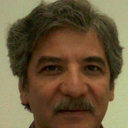Taraxacum officinale and Urtica dioica extracts inhibit dengue virus serotype 2 replication in vitro.
Ključne besede
Povzetek
BACKGROUND
Urtica dioica, Taraxacum officinale, Calea integrifolia and Caesalpinia pulcherrima are widely used all over the world for treatment of different illnesses. In Mexico, these plants are traditionally used to alleviate or counteract rheumatism and inflammatory muscle diseases. In the present study we evaluated the activity of aqueous and methanolic extracts of these four plants, on the replication of dengue virus serotype 2 (DENV2).
METHODS
Extraction process was carried out in a Soxtherm® system at 60, 85 and 120 °C; a chemical fractionation in silica gel chromatography was performed and compounds present in the active fractions were identified by HPLC-DAD-ESI/MSn. The cytotoxic concentration and the inhibitory effect of extracts or fractions on the DENV2 replication were analyzed in the BHK-21 cell line (plaque forming assay). The half maximal inhibitory concentration (IC50) and the selectivity index (SI) were calculated for the extracts and fractions.
RESULTS
The methanolic extracts at 60 °C of T. officinale and U. dioica showed the higher inhibitory effects on DENV2 replication. After the chemical fractionation, the higher activity fraction was found for U. dioica and T. officinale, presenting IC50 values of 165.7 ± 3.85 and 126.1 ± 2.80 μg/ml, respectively; SI values were 5.59 and 6.01 for each fraction. The compounds present in T. officinale, were luteolin and caffeoylquinic acids derivatives and quercertin diclycosides. The compounds in the active fraction of U. dioica, were, chlorogenic acid, quercertin derivatives and flavonol glycosides (quercetin and kaempferol).
CONCLUSIONS
Two fractions from U. dioica and T. officinale methanolic extracts with anti-dengue activity were found. The compounds present in both fractions were identified, several recognized molecules have demonstrated activity against other viral species. Subsequent biological analysis of the molecules, alone or in combination, contained in the extracts will be carried out to develop therapeutics against DENV2.


